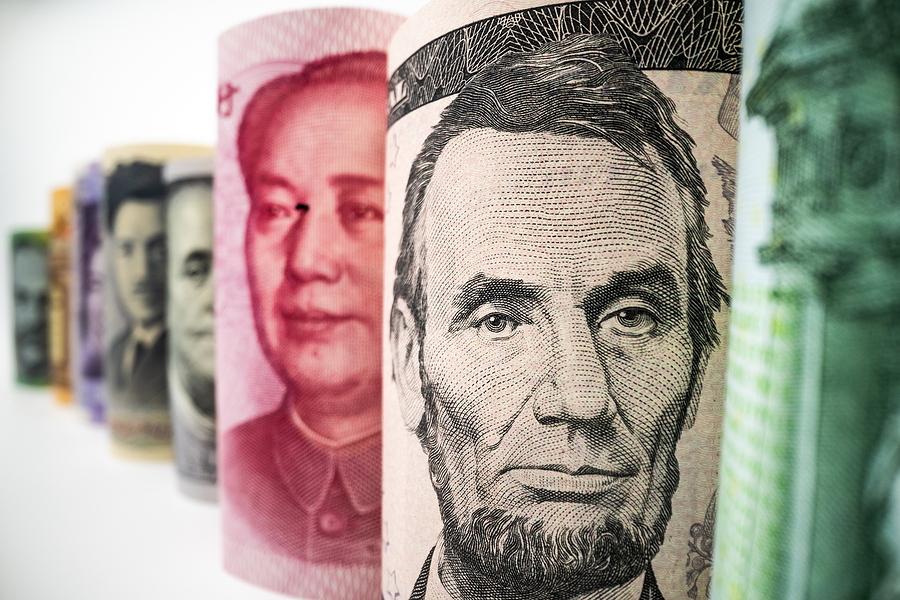If you wouldn’t put all your eggs in one basket, why would you keep just a single currency? Even stock investors don’t invest in just one stock. Just like in fixed income and equity markets, diversified currency can protect your income from unforeseen circumstances and also help you reach your goals for investment. Whether it is a student in school studying several subjects, or a parent telling their kids to eat more fruits, it is widely understood that diversity is a vital principle. And it is more so with regards to investing. The number one investment principle is the allocation of assets. So this is what you should be doing with your salary.
Although a lot of traders argue and worry about which stock they should buy or sell next, smart investors focus on spreading money throughout a wide set class, including emerging market stock, bonds, US stocks, foreign developed stocks, real estate, sometimes commodities, and inflation-protected securities. The diversification of assets is expected to minimize risks within a portfolio, while part of your investment moves back and forth making some money for you in all environments.
Asset diversification in simple terms
Table of Contents
A citizen staying in a foreign country and keeping their income in another currency should take currency diversification into consideration. The diversification of currency is not only about the currency that your assets are stored in, however, it also determines your account’s basic investment.
Tools that are often considered as good diversification generally include mutual funds. The reason for this is because they are structured in such a way that the value of the product will not be dramatically affected by any movement of a security in the fund. Despite that, one drawback of mutual investments is that Americans living outside the country find it difficult to buy them, whether offshore or in the country. For this reason, experts in America use Exchange Traded Funds for the diversification of the holding that is available in their portfolios. However, if you come across a broker who accepts American traders, then you could use the account created by the brokerage for the investment of your foreign currency where the Exchange Traded Funds are dominated by euros, for large companies based in Europe. By so doing, you get exposure to a list of companies that are effectively diversified.
Diversifying your salary into different currencies helps you reduce the risk of the drop in the prices of currencies, that is, if you have your salary in just a single currency, you risk losing money when prices fall, but the reverse is true if your income is diversified in different currencies. This is exactly what happens in forex trading. Because currencies could absolutely change their exchange rate within just a couple of seconds. This has been something utilized by Forex traders for decades now as they continue using minute strategies when trading forex. If professionals aren’t exposing themselves to risks, then you definitely should not as well.
Another thing you could also do is to create an account with a local US brokerage and invest your USDs in a dollar-designated Exchange Traded Funds based on the same index of EU stocks. Although both are designated in different currencies, the fundamental investment has the same currency designation and can also be the same. Certainly, both investments will have the same worth no matter if it was held in one currency or the other.
Staking currency on currencies is like a wager, one always loses and the other wins. This can also be compared with stock investment where if one goes down, another will go up. Therefore, when making a decision on which asset to put your portfolio, keep in mind your currencies, tax requirements, and address.
How much is needed for diversification?
This is a common question that a lot of investors ask and also what the diversification for non-USD should be. There is no definite answer to the question because the situation is different for every investor. But for starters, Prove Bank allocates about 65% to 70% for a balanced CIO portfolio of its forex unhedged equity that is exposed to US stocks.
Over the long term, it has been proven that international stocks and globally balanced US portfolios produce better returns with better risk adjustment and lower volatility than in a situation with a US-only investment. This implies that even for investors of the USD, the diversification of the USD is more than 70% and it seems too concentrated for others. The exposure of the dollar should be as important as making a decision on how much non-USD vs USD exposure to maintain.
In practical terms, the suitable standard for diversification will change depending on the home currency of each client, investment portfolio, strategic goals, and risk tolerance. A good example is a situation where a strategic forex distribution for USD based customers in a UK-based business could consider something within the range of 20%EUR, 70% USD, 10% GBP. If these same clients own some Australian business or have plans to relocate to New Zealand for their retirement, some of these currency diversifications are a strategic benchmark. The reason for this is because each customer’s forex benchmark needs to be customized and personalized by definition.
What currencies should you maintain?
If you plan to send your kid to study in the UK, you’ll need some GBP to do that. If you live in the US but have houses and assets in Europe, you’ll need both euros and USD. Which country do you plan to retire to? This is to ensure that you have the exposure to the currencies you’ll need for your long-term goals and in the amount that is sufficient for your situation.
In summary, when you store your money in different currencies, it works in your favor, just in case one of the currencies fall, you will still have the value stored in other currencies, unlike in a situation where you have your salary stored in one currency and forex prices drop and you find out that your money has lost value its value when this could simply be avoided by diversifying your currencies. This is basically what forex traders do, that is why it is said that at some point in our lives, everyone is involved in forex trading.
Image Source: BigStockPhoto.com (Licensed)
Site Disclaimer
The Content in this post and on this site is for informational and entertainment purposes only. You should not construe any such information or other material as legal, tax, investment, financial, or other advice. Nothing contained on our Site constitutes a solicitation, recommendation, endorsement, or offer by HII or any third party service provider to buy or sell any securities or other financial instruments.
Nothing in this post or on this site constitutes professional and/or financial advice. You alone assume the sole responsibility of evaluating the merits and risks associated with the use of any information or other content in this post or on this site.
You recognize that when making investments, an investor may get back less than the amount invested. Information on past performance, where given, is not necessarily a guide to future performance.
Related Categories: Money, Reviews







